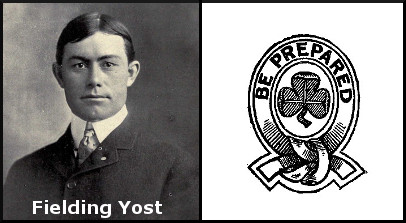Asylum Inmate? Lester Ridenhour? Leo Aikman? Apocryphal?
Question for Quote Investigator: According to legend an automobile driver noticed that a tire was going flat, and pulled over to the side of a lonely road adjacent to a tall metal fence. While replacing the tire with a spare the apprehensive driver removed the four lug nuts and accidentally dropped them down a sewer grate.
A figure behind the metal fence saw the dispirited driver and presented a clever solution to the awful predicament. Each tire could be attached with three lug nuts, and the car could be driven to a service station for further assistance. The helpful person was a resident of a mental asylum, and the anecdote ended with this didactic exchange: “How is it that you could give such sound advice?” “I may be nuts but I’m not stupid.” Would you please trace this story?
Reply from Quote Investigator: This tale is difficult to explore because it can be told in many ways. The earliest evidence located by QI appeared in a North Carolina newspaper in 1951. Lester Ridenhour who was the assistant principal and director of athletics at Burlington High School travelled to Raleigh, North Carolina together with students to play in a basketball tournament.
When the group returned to their car they discovered that one wheel with its hubcap and lugs had been stolen. Ridenhour walked three miles to find an open service station:1
The service station attendant returned with him to the car, jacked up the axel off the ground, took one lug off each of the other wheels, fastened the spare wheel into position, and got the group on its way home. Arrival In Burlington: 2 o’clock this morning.
The newspaper article contained the crucial elements of the puzzle solution, but there was no mention of an asylum or an astute inmate.
Below are additional selected citations in chronological order.
Continue reading “Anecdote Origin: Lug Nuts: I’m Here Because I’m Crazy; Not Stupid”